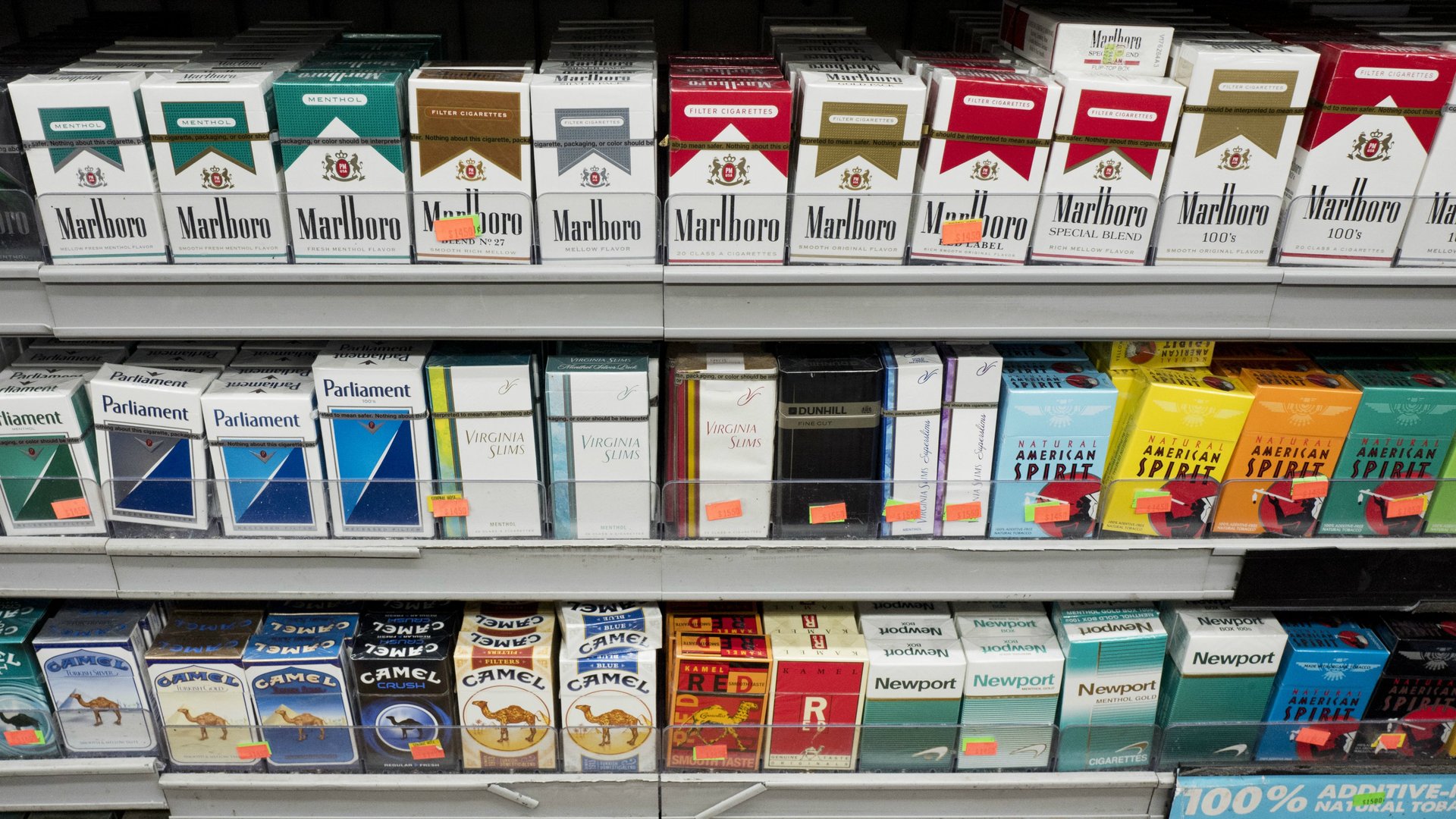Tobacco companies picked a disenchanted robot to warn against smoking dangers
The ad, court-ordered to hit the airwaves over a decade ago, was finally delivered this month by a primitive relative of Siri, in a bored, monotonous incantation. The message is simple: cigarettes are bad for your health. The story behind the ad is anything but.


The ad, court-ordered to hit the airwaves over a decade ago, was finally delivered this month by a primitive relative of Siri, in a bored, monotonous incantation. The message is simple: cigarettes are bad for your health. The story behind the ad is anything but.
The campaign is part of a punishment the US government placed on tobacco companies more than 10 years ago, after the industry admitted it knowingly designed cigarettes to be addictive despite consequences to the public’s health. But the companies—including Altria, R.J. Reynolds Tobacco, Lorillard, and Philip Morris USA—spent years filing and losing court appeals. So the anti-smoking ads, paid for by the big tobacco companies, are only now being run in print and on television in the US.
The opening lines in the video ad made by the companies are frank and unapologetic, setting a “they made us do this” tone.
Industry watchers told NPR the tobacco companies went over every detail of the ads with a fine-toothed comb, fighting over each word. Marketing experts say the resulting ad would not capture the average person’s attention. For starters there are essentially no images in the video ads, just black text on a white backdrop. The robotic voice is the closest thing to a human that appears in the ad.
Likewise, the print versions, some of which appeared in The New York Times, are equally stale; straightforward ads without color or any other attention-grabbing design elements.
Over the past decade, the number of Americans who smoke tobacco has declined thanks in part to smoking bans in many US public spaces, restaurants, and bars. Companies have also been forced to slap large warning labels on their packaging, meant to send a signal to potential smokers that lighting up could be detrimental to their health.
The tobacco companies say they are eager to move forward.
“This industry has changed dramatically over the last twenty years, including becoming regulated by the FDA [the US Food and Drug Administration], which we supported,” a statement by Altria reads. “We’re focused on the future and, with FDA in place, working to develop less risky tobacco products.”